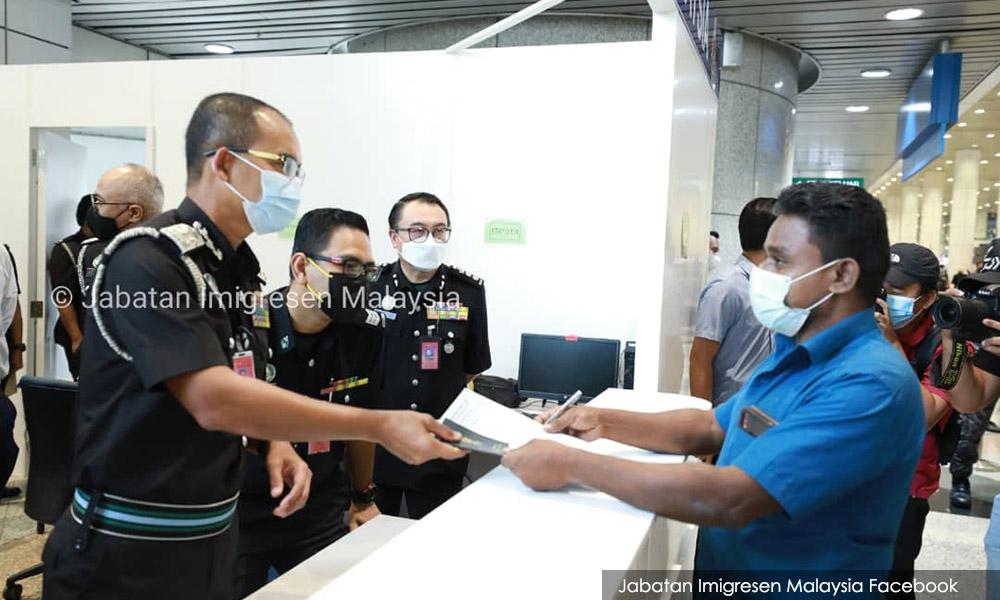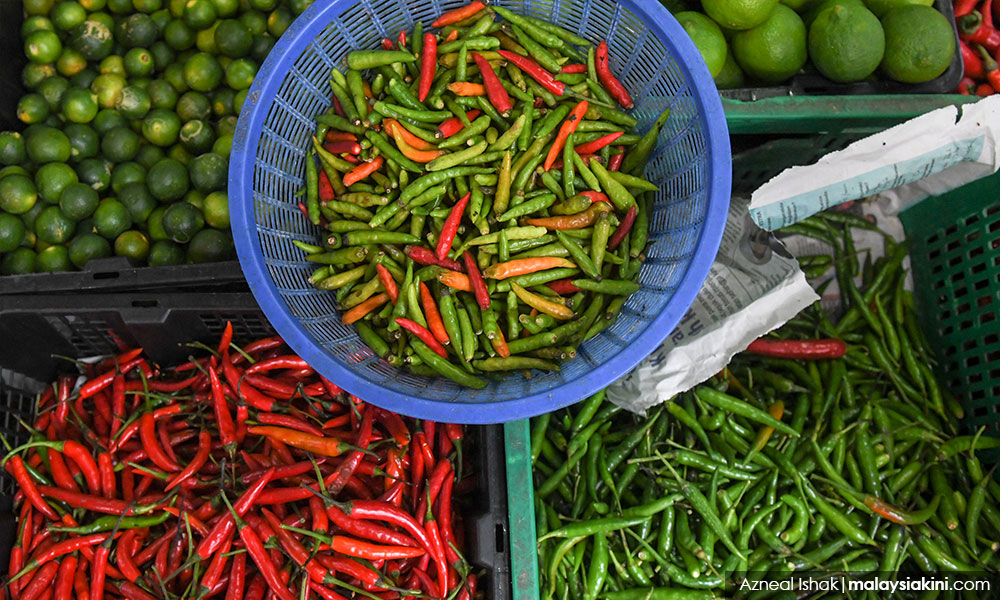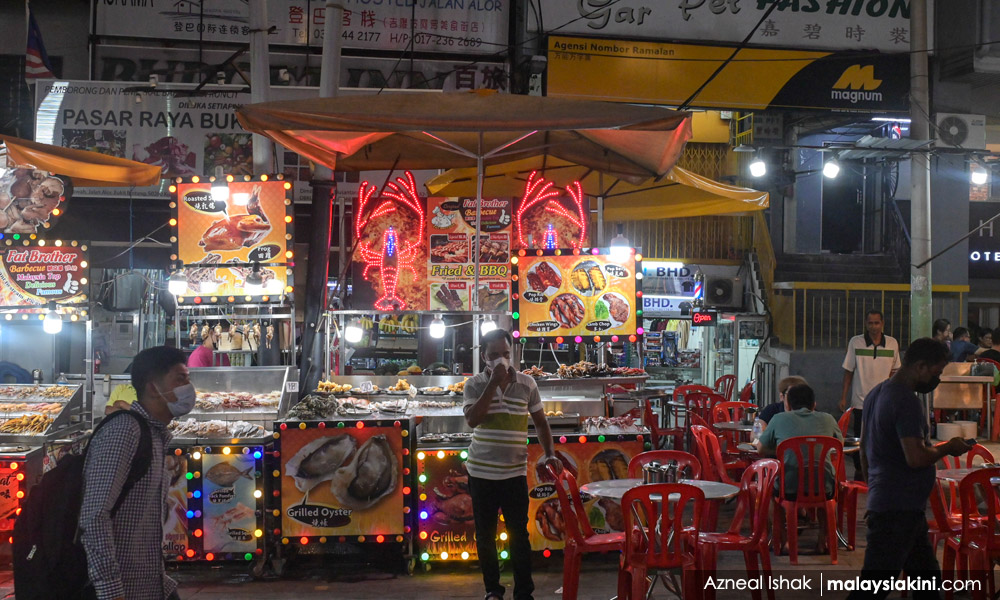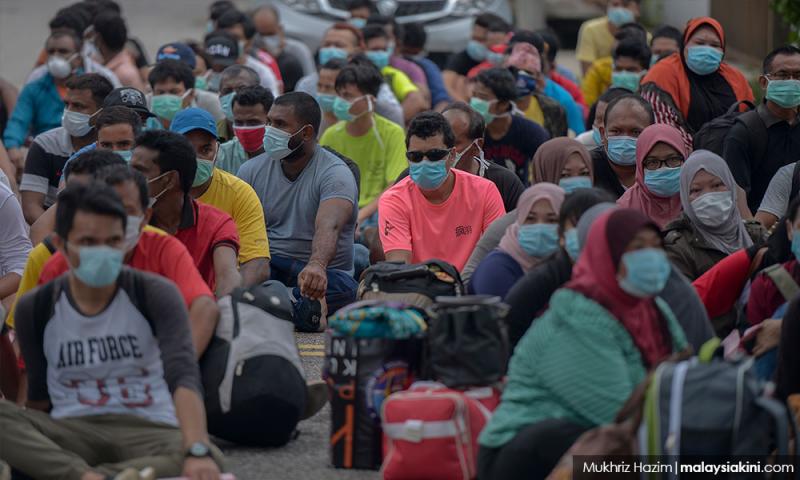LETTER | Ease immigration processes, prioritise food security
LETTER | Congratulations and compliments to Prime Minister Anwar Ibrahim and the government for completing the appointment of ministers and their deputies.
Now the government can go full steam ahead to face the major challenges facing the country. As a supporter, I have a few pointers for the administration to consider urgently to win the confidence and goodwill of the people.
One of the ministries that have to undergo serious change and transformation is the Home Ministry, especially the immigration and foreign workers’ recruitment sections.
No other department creates so much worry and apprehension than the Immigration Department with its people-unfriendly ways.
People dread dealing with the immigration personnel as no work can be completed either without being given the run-around or else - one has to rely on agents and runners.
Is this the way a government department should be appraised by the public? I remember there was a time when the Home Ministry even said that issuing of international passports was a privilege and not a right to be demanded by the citizenry.
People were queueing as early as 5am to get their queue numbers for their applications to be processed. It was the deputy home ministers during the 1990s - Ong Kah Ting and Tajol Rosli, who did away with this nonsensical statement and made application for international passports easy, which continues to this day.
I hope the newly appointed Home Minister Saifuddin Nasution Ismail will set up a task force inclusive of some NGOs to look into ways of making various application processes customer-friendly and simplified.
It is the vested interests who are a major clog in the system, corrupting the department as a result.
The government will also do well to come up with an amnesty to legalise all undocumented foreign workers. There are literally millions of them here as they prefer to work illegally rather than get enmeshed in the messy foreign workers’ registration system and lose money or incur high agents' fees.

Due to the lack of manual foreign workers, many enterprises, sole proprietorships, plantations, farms, SMEs and even large companies are facing a difficult time and some are even closing.
The country needs to legalise these workers first and also get new workers fast so as to beat the recession predicted for next year.
Providing these industries with the necessary workers will be a big boost against any economic slowdown and prevent the socio-economic effects from snowballing nationwide.
Nowadays, even countries from where Malaysia traditionally recruited foreign workers are hesitant to send their workers because of the negative image of the country's foreign worker recruitment system and the flip-flopping of rules that victimise foreign workers as well as their employers.
The long queues of both employers and their foreign workers cast a negative image. What should have been a simplified recruiting system has been made complex and complicated to favour corruption and agents, and it should be discarded once and for all.
Every immigration office should have an enquiry room with an experienced officer to advise anyone who needs help and clarity of the process.
We also need to have a system where all foreign workers are properly documented through a simplified process. The application process should be easy and uncomplicated as all that is needed is a day or two.
Less red tape, please
Smaller businesses can only apply for a limited number of workers. Bigger businesses need to show both their business registration and income tax returns as proof to ensure that they do not abuse the process of applying for more workers.
With this system, most of the potential abuses can be overcome and employers can apply directly for the workers. No agents should be permitted as they are the ones who have made foreign workers’ recruitment system so pervasively corrupt to the core.
The home minister needs to set up a task force to find the cause of the problems plaguing the Immigration Department. Take proactive action to rectify and simplify the various processes and the nation will be thankful to you.
You will leave a legacy like the two deputy ministers aforementioned.
Foreign workers have now become one of the main lynchpins of the economy. Their manual labour and hard work are the foremost contributors to ensuring our food security and other needs.
The main reason for the high prices of agricultural produce is the lack of foreign workers. They help keep prices low with increased productivity in agricultural and livestock-rearing farms, orchards, horticultural nurseries, shops and factories.
Some of the consumer items that increased the cost of living of late will quickly come down if the government can get more foreign workers for manual and 3-D jobs. Migrant workers are not depriving locals of jobs as the latter prefer better jobs and higher wages.

Many of the smaller businesses are wholly dependent on foreign workers and have been or will be forced to shutter their businesses. A large number of small businesses have closed, are closing or downscaling their business due to the effect of the pandemic and lack of foreign workers.
Many of these employers who were in the M40 have now joined the B40 due to loss of income.
The federal government and state governments must also grant more leaseholds, permits and TOLs to provide additional land and encourage more farming activities to ensure better food security.
Malaysia has plenty of agricultural potential and it should not concentrate only on oil palm, rubber and durian. A wide variety of vegetables and fruits can be grown in Malaysia and there will be less need for imports which adds to the costs.
There is so much of idle and unutilised land in the country. As such, Agriculture and Food Security Minister, Mohamad Sabu needs to act fast to open new farming areas and look into the various reasons for the rise in the prices of agricultural produce, which is hurting the people.
It is to note that perishables are now one of the main causes of the increase in cost of living. Previously, what one could purchase for RM 50 in the wet market now costs RM150 and this is a big burden for the B40.
Many including the government blamed the Russia-Ukraine conflict for the disruption in supplies and subsequent price increases. However, do you think prices are going to come down when the war is over?
In Malaysia what goes up, especially the of consumer items, never comes down! As the prime minister has stated, there is a need for a fool-proof system to target subsidies to the right category of people.
A subsidy card issued to the B40 will be helpful to ensure that only the needy will get the subsidies and not those whose income levels are high.
Eating out has become popular and a necessity for working people. However, the prices of food and drinks have gone up exponentially and the relevant authorities should check on it.
All eateries and restaurants should be required to issue an itemised bill to customers whether it is requested or not. This must be made compulsory.

There are too many unscrupulous eatery owners and operators who simply hike the bill as few want to check the payment requested.
Even the food courts subsidised by the local authorities and government by way of lower rentals and other benefits are charging high prices for food and drinks.
The views expressed here are those of the author/contributor and do not necessarily represent the views of Malaysiakini.
RM12.50 / month
- Unlimited access to award-winning journalism
- Comment and share your opinions on all our articles
- Gift interesting stories to your friends
- Tax deductable
